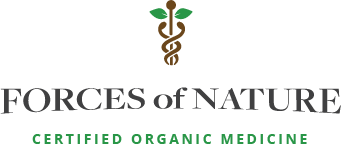By Josephine A.
The severity and longevity of sinus problems varies for each individual; people can have chronic or acute sinus problems, or they may experience a sinus infection versus sinus problems associated with allergies or cold and flu.
Therefore, let us explore this variation in causes, symptoms, and treatments in order to get a better understanding of where our health issues fit, and ways we can alleviate, as well as prevent, the resulting pain and discomfort.
With all the discomfort sinuses may cause, one might wonder what purpose they serve in the first place. Well, your sinuses are quite important, and their function and importance may give us some insight as to why they are more susceptible to problems. Sinuses are air-filled cavities which play a vital role in warming and filtering the air we breathe. Mucus lined in the sinuses traps dust, germs, and other particles in the air, and this mucus is then “swept” by tiny hair-like projections to openings leading to the back of the throat.
Sinus infections, what is called sinusitis, is often caused by bacterial or viral infections. This differs from other sinus-related problems; one common one being swelling in the sinuses due to common seasonal and year-round allergen, as well as cold and flu symptoms.
Other causes may be associated with more physical occurrences, such as a deviated septum or the presence of nasal polyps. Because of the variation in problems, let us look to the symptoms which will better inform us on how to tell the differences.
A bad cold is often mistaken for a sinus infection because the symptoms are similar: tenderness or pain in the face, postnasal drip, discolored nasal discharge, and nasal congestion. However, with a sinus infection, you can also have headaches, tooth pain, fever, coughing, fatigue, and bad breath.
Another similar association in symptoms to look out for is allergic rhinitis versus sinusitis. Allergic rhinitis can create the same cold-like symptoms shown in sinus infections, including a runny nose, congestion, and sinus pressure. However, allergic rhinitis involves symptoms of itchy, watery eyes, rarely seen in sinus infections, whereas sinus infections involve a thick, yellow or green nasal discharge, rarely seen allergic rhinitis.
In addition, there are both acute and chronic sinus infections. Acute infections involve symptoms lasting somewhere between ten days to eight weeks, but in most cases viral infections go away within a week to 10 days. However, chronic sinus problems may drag on for months at a time and require further treatment.
There are various types of treatments for sinus problems, depending on the cause, longevity, and severity of the situation. However, Forces of Nature’s Sinus Maximum Strength is a holistic method addressing prevention and alleviation, therefore providing an all-encompassing approach.
Some examples for different types of treatments include antibiotics, nasal decongestant sprays, or nasal corticosteroids. Antibiotics are sometimes prescribed to address bacterial sinus infections that are persistent or severe. However, overuse or incorrect use may cause antibiotic resistance, which is why it is important to differentiate the severity and cause of sinus problems.
Nasal decongestant sprays are also helpful if used no more than 3-4 days, since overuse can cause nasal passages to swell shut due to dependence. Topical nasal corticosteroids can be used to prevent and reverse swelling and is also used to address nasal polyps.
Lastly, a viral sinus infection lasting a week to 10 days is said to go away only with time and alleviation of pain. Therefore, there are many setbacks to treatment. Overuse can cause a physical dependence, which greatly alters the bodily makeup. In addition, prevention is left out. That’s why Forces of Nature products and their adherence towards preventative healthcare is vital.
Forces of Nature’s Sinus Maximum Strength is FDA certified, an immunotherapeutic solution, and involves a sublingual delivery system. This treatment helps drain the sinuses, produce anti-inflammatory results, and prevents recurrence of sinus problems by acting on the root cause and enhancing immunity.




